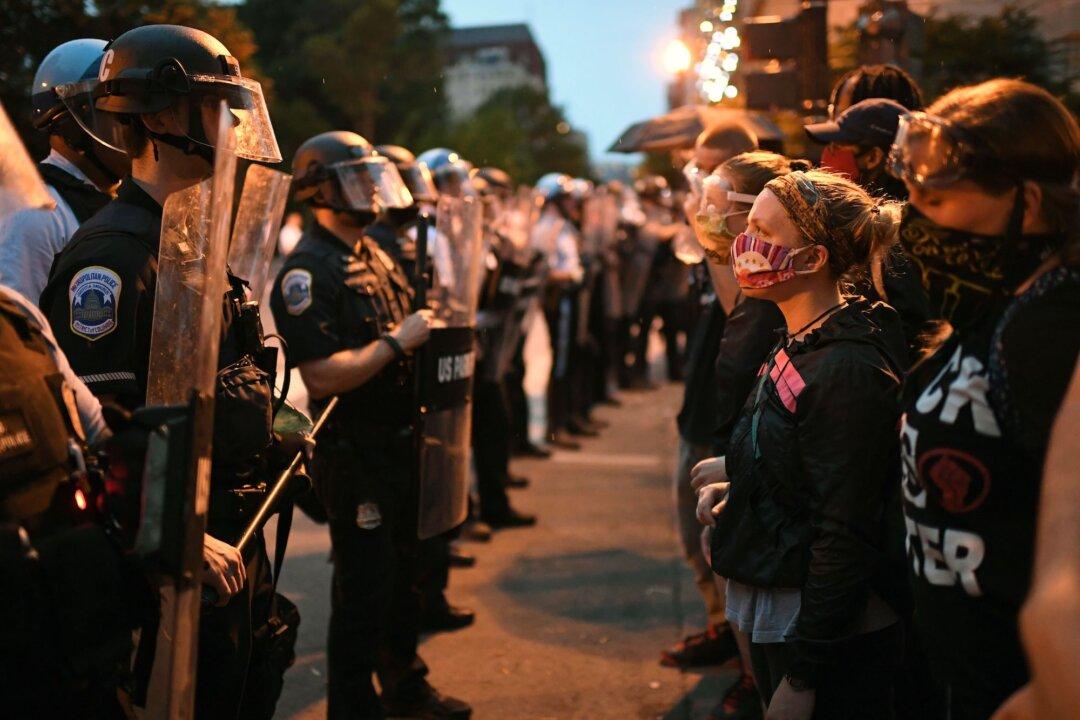George Washington University is urging students to stockpile food and medicine in an effort to prepare for “possible election-related disruptions” on or near the university’s campus in Washington.
In an Oct. 30 email, GWU’s student affairs and residential living officials suggested that students living on or near campus prepare for Election Day, a designated university holiday, “as you normally would for a hurricane or a snowstorm” that would prevent them from going outside for days.





